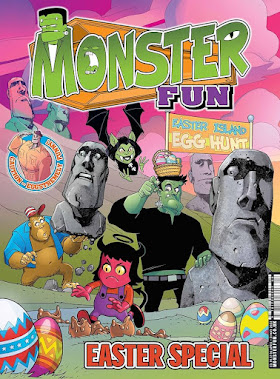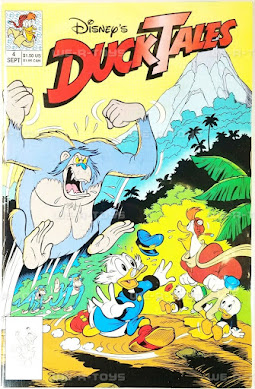Chip n' Dale Rescue Rangers. TailSpin. Darkwing Duck. Without the success of their predecessor DuckTales, none of these classic Disney cartoons from the late 80s-early 90s would have existed. In fact, the Disney Channel as it operates today as a leader in children's programming as well as the streaming juggernaut Disney+, if not for the pioneering nature of DuckTales.Production for DuckTales began in 1986. At the time, it was a big gamble for Disney who was fledgling against a wave of new animation studios that was poaching quality talent away from the House of Mouse. In 1985, Disney saw a moderate success with the weekly TV series Adventures of the Gummi Bears. Debuting on NBC, the show was an all-new property, though loosely based on the popular gummy candies. It's surprise popularity enticed Disney to begin production on a daily syndicated series that would air in the late afternoon when children would be home. It needed to be based on a Disney icon. Instead of focusing on Mickey Mouse producers wanted a lead character with a bit of an attitude. And of you wanted attitude in the Disney universe, you headed over to Duckburg, Calisota!
Based upon the classic Duck universe comic stories of Carl Barks, DuckTales was an adventure heavy animated series that saw Uncle Scrooge and his nephews Huey, Dewey and Louie seeking treasures from across the globe; even the Moon! Enemies such as the Beagle Boys, Flintheart Glomgold and Magical De Spell would be the standard flies in Scrooge's ointment as he constantly looked for new ways to fill his already overflowing coffers.
To the dismay of Duck fans, Donald Duck would be missing. Due to an internal edict by Disney, the main trio of Mickey, Donald and Goofy were forbidden from being used in the newly developed television animation department. Thus, Donald was sent away to join the Navy (He already had the hat and tunic!) and the larger than life Launchpad McQuack was introduced to pilot Scrooge and his nephews around the world. (The policy forbidding the use of Disney's major Golden Age characters would be overturned in 1992 with the release of the syndicated series Goof Troop starring Goofy and his son Max. Again, thanks to the popularity of DuckTales!)
As DuckTales quickly dominated the airwaves, Disney immediately looked for ways to market the series through merchandising. The first thing Disney approved was a comic book series by their American license holder of the Disney comic book rights, Gladstone. The first few issues had Studio Program material featuring Donald in the episode based adventures. Yet on the covers it was Launchpad on the engaging with Scrooge and family; not Donald! The rest of the book was filled with a classic Barks story, which also featured Donald.
I realize the mastery of those stories in my older age. But for a 12 year old who was a fan of the TV show as well as a subscriber to Gladstone's comic adaptation, the stark contrast of art styles between the TV show and 1950s Disney Ducks was confusing. Having Donald acting out stories that he wasn't even involved in on the TV didn't help matters much either. Once Disney 's Studio Program realized that Donald was absent from the series, the remainder of the first volume of DuckTales' 13 issues featured Launchpad instead. Those first tales featuring Donald are now considered non-canon by fans.
In 1990, Disney revoked the licensing rights form Gladstone. The studio decided to publish their own comics. Len Wein was hired as the Editor-in-chief. With a full length feature film hitting theaters later in the year, Disney Comics published the second volume of DuckTales. The 18-issue series was nothing like Gladstone's book. An all-new multi part story saw Uncle Scrooge, the nephews and Webby, the granddaughter of McDuck's housekeeper, Mrs. Beakley attempting to recover Scrooge's lucky dime from the clutches of Magica De Spell.
In this issue, the Duckburg estate is celebrating the safe return of Webby from being held captive by Magica. As a present, Scrooge takes his nephews and Webby on a cruise where bad weather causes McDuck to be swept overboard. He awakens, marooned on the tropical island of his dreams because the native monkeys pay him in trade for coconuts and other fruits in rubies, diamonds and emeralds. However, everything becomes less than ideal when a giant ape arrives on the scene literally throwing his weight around!
While the story ends with a 'To Be Continued' blurb, thankfully things on Ape Island satisfyingly end to prevent readers from having to wait for Scrooge's rescue in issue #5.
Volume 2 ran for 18 issues right up until the publisher imploded in 1991, cancelling all but a trio of series. DuckTales #4 was written by season one screenwriter Frank Ridgeway. Covers and art by Cosme Quartieri and Robert Bat.
Completing this review completes Task #4 (A Comic Book Based on an Animated TV Show) the 2025 Comic Book and Graphic Novel Reading Challenge.







.jpg)


